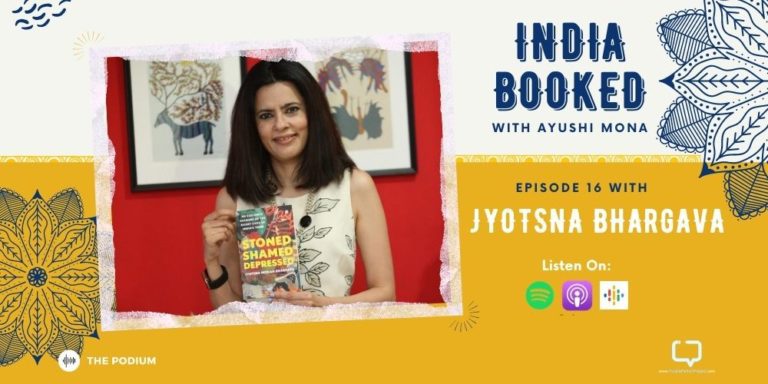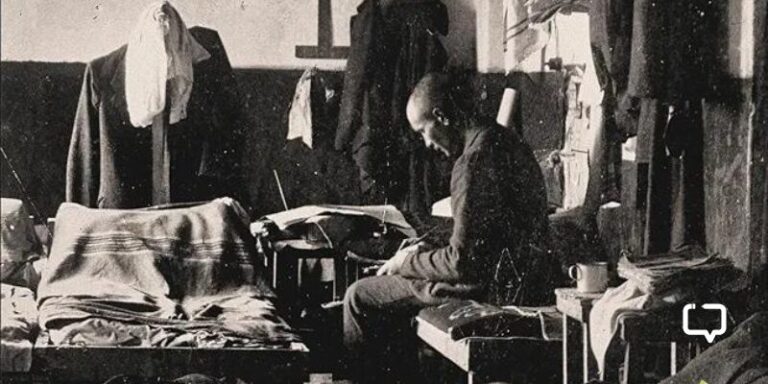Anshika Jain reviews Fit In, Stand Out, Walk: Stories from a Pushed Away Hill by Shailini Sheth Amin (Notion Press, 2024).
In a conversation with a classmate about how fewer Hindi female writers wrote in an entirely political voice like Sahir Ludhianvi or Ramshankar Yadav ‘Vidrohi’, I asked why women are not writing from a purely outside-home political lens. She replied that the reason many female standup comics talk about inside-home affairs like periods, the patriarchal structure of familial relationships, the onus of taking care of the house falling onto them, the trauma of marriage passed on from parents, etc., is because they have to deal with these issues on a day-to-day basis.
And since these thoughts are clicking in their minds day in and day out, without fail, without the machinery of the automatic hammer breaking, she communicates these problems repeatedly until there’s hope of the hammer shattering. But the hammer does not shatter, and hence, the same thematic jokes are repeated by female comics.
Recommended Reading: Heart Tantrums by Aisha Sarwari: A Feminist’s Memoir of Misogyny and Marriage
Fit In, Stand Out, Walk by Shailini Sheth Amin starts with a prologue along similar lines:
Women’s lives and their stories, even when they have a professional identity and are active in the community, are closely entwined with their families, children, and people close to them… Anything said by a woman about herself, whether positive or negative, would directly impact her personal life and the place she holds with the people around her. A positive, courageous, and successful portrayal could be perceived as being credit-taking, selfish, bragging, egoistic, and sometimes ‘bitchy’. Portraying herself as misunderstood, mistreated, or as a victim could lead to her being perceived as sympathy-seeking, incapable, weak, and demeaning.
In such a scenario, it becomes essential for narratives like in this book to blur the archaic Lakshman-rekha drawn between the outside and inside for women, not only to show that women are capable of leadership and administrative positions but also to highlight the possibility of the coexistence of empathy and pragmatism.
Neelima’s Journey in Fit In, Stand Out, Walk by Shailini Sheth Amin
The memoir follows Neelima’s journey from being abandoned in Hanging Gardens, Mumbai, when she was just one and a half years old, to becoming a recognized sustainability advocate. Her adoption by Surabhi Jhaveri, the complex process of fitting into an affluent, politically and socially active matriarchal family since the freedom struggle, the scarred wounds of an abusive marriage, life as a single mother, finding love again in a narcissistic man, standing out as a skilled architect with a sustainability approach, refusing to let go of her individuality for the hypothetical “us” in a Jodidaari, and carving out a path for herself to walk with pride, everything and more is laid out in crisp details.
This was not a commune; it was a family of women with a matriarch. Some members were related by blood, and all were related by heart and soul for life. In a world of selfish, greedy, manipulative, and exploitative people, by the great game of throwing of proverbial dice, I was placed in this family, not by birth or by blood. A family with everlasting, indestructible connectedness.
– Fit In, Stand Out, Walk by Shailini Sheth Amin
Such a description of a family is positively distinctive for generations fed on the myth “aurat hi aurat ki dushman hoti hai” (translation: a woman’s enemy is another woman). This family’s sisterhood is not just for blood relations but also for women at large, which gives a reader a hopeful outlook for female friendships, comforting people living Harry Style’s “Matilda” life.

Motiben’s resolve to adopt a child disregarding the societal rule of marriage first, Behenji’s collaborative yet disciplined approach to the running of C.N. Vidyalaya and other social ventures, and Gajiben’s acceptance and companionship that Neelima gets till the very end is nothing short of heartwarming.
Architecture and Nature: A Love Story
Neelima’s love for architecture and nature, which she picks up from the other women in her family, shines through the text, for example, the vivid descriptions of the two bungalows in Ahmedabad:
And where was my ‘home’? It was not the drawing room, the dining room, the bedroom, or the kitchen. The squarish porch had four solid columns but no walls, a flat roof, and delicate, decorative arches. It was an open space—a space where air would flow freely in all seasons. Sunlight and moonlight would filter through the trees and creepers around it.
The light and shade create ever-changing patterns in this flowing and breathing, ‘in-between’, transitional place. It was a point of beginning and end of any journey. I felt that I was accommodated, protected, and nurtured in this enclosed openness. I just fitted in, I was nourished, and I thrived while these two sisters warmly embraced me from each side.
– Fit In, Stand Out, Walk by Shailini Sheth Amin
Conclusion
Shailini Sheth Amin, with honesty and objectivity, weaves a story full of valuable life lessons about childhood trauma, matriarchy, separation, death, abusive relationships, and self-discovery. Although, at times, there seems to be a slight emotional disconnect between the author and the text, the Fit In, Stand Out, Walk is well-structured and quick to go through. Readers and podcast lovers looking for female entrepreneurial inspiration in the predominantly male genre of business memoirs will find it a stimulating read.






















